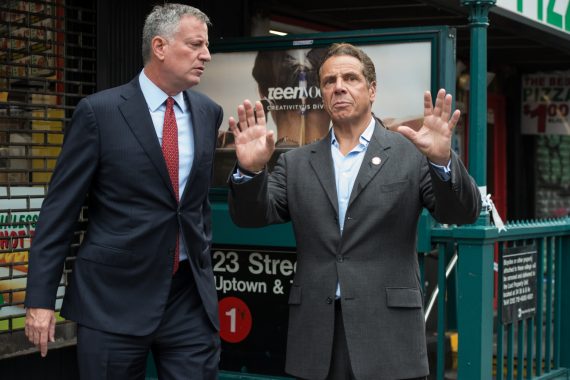In the past 11 years, the city “wasted” at least $2.5 billion through the 421a tax abatement program, a new report charges.
The New York City Independent Budget Office released a report on Monday that claims the city squandered $2.5 billion to $2.8 billion in tax expenditures from 2005 to 2015. The report asserts that these dollars were wasted because condo owners receiving the benefit saved more in taxes than they paid in higher sales prices. The agency — which looked at 101,477 condo sales over 11 years — points out that Manhattan condo owners paid a mean of $35,500 more for properties with the 421a tax abatement. The report found that Manhattan buyers paid between 53 to 61 percent of their tax benefits extra for their properties. In the outer boroughs, buyers paid a mean of $31,200 for condos with 421a — or 42 to 50 percent of the benefit that they are expected to receive.
The crux of the report is that the tax benefit is being passed off to the condo buyer instead of the land owner/developer, when the program is ostensibly designed to encourage development. The IBO posits that the tax abatement therefore hasn’t fulfilled its purpose and may actually raise land and housing prices. (The developer would likely argue that the tax break is a major selling point — that it’s what makes the project feasible in the first place.)
“Perfect economic efficiency is a moving target, and as such an entirely waste-free program is likely an impractical and cost-prohibitive policy goal,” the report states. “Nevertheless, as New York policymakers look to revive 421a (or a similar variant), giving greater attention to the program’s benefit levels so as not to oversupply tax subsidies would help make better use of scarce public resources.”
The report closely followed Mayor Bill de Blasio’s comments last week that he’s concerned larger luxury condo projects may be added to the governor’s proposal to revive 421a — now dubbed “Affordable New York.” The mayor reiterated this concern on Monday during a joint legislative public hearing, saying that to include such condo projects would “creep back into the direction of the old and broken system.” He also extolled the virtues of the separate plan he put forward in 2015, which barred all condo projects from receiving the tax abatement.
He also claimed that his program would’ve added 25,500 affordable housing units over 10 years, whereas the governor’s will only add 21,750. (The mayor’s math seems a bit different than the governor’s, which estimates that 2,500 affordable units each year would be created. A spokesperson for the Department of Housing Preservation and Development said the discrepancy is due to the small condo projects allowed outside Manhattan.)
A spokesperson for Cuomo would only reiterate that the governor would not support a plan that includes more condo projects.
Cuomo’s proposal — agreed to by the trade unions and real estate lobby — only includes condo projects outside Manhattan with 35 units or less. But there’s been some chatter about expanding what projects are eligible for the abatement. In December, Brooklyn Senators Marty Golden and Simcha Felder said they would push for larger condos to be included in the program. Felder didn’t comment on the tax abatement during Monday’s hearing, instead berating the mayor for the city’s tax on plastic bags. The mayor said on Monday that he’s not concerned about the smaller outerborough condos, but didn’t specify exactly who’s leading the discussion about adding luxury condo projects.
Sen. Liz Krueger asked the mayor how much adding condos back into the program would cost the city. He didn’t provide an estimate, though his administration has previously said Cuomo’s proposal would cost the city $82 million more than the mayor’s.
Krueger noted that she didn’t like the mayor’s proposal either, but wasn’t a fan of Cuomo’s “Affordable New York.”
“421a was bad,” she said. “This one has a new name, but it’s worse.”
